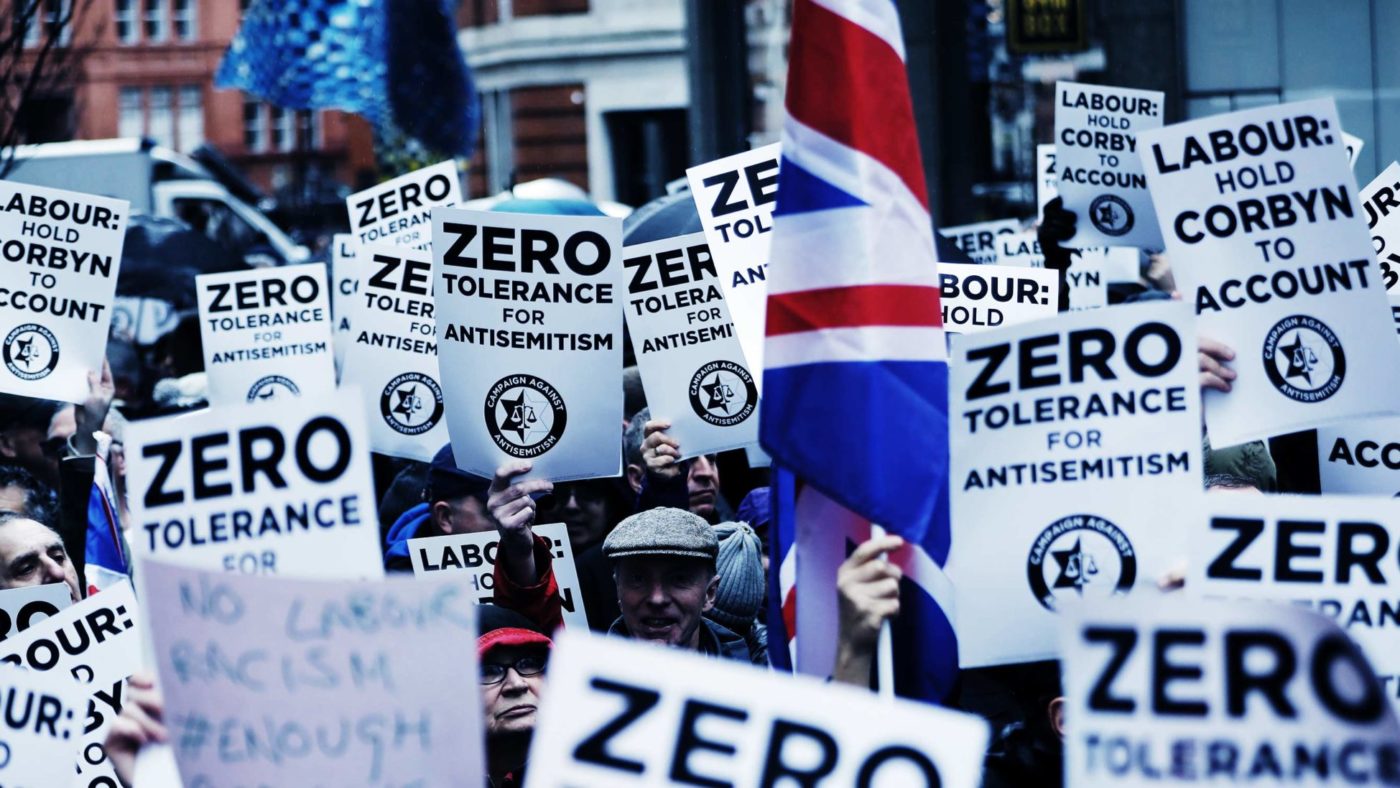The long-standing row over alleged anti-Semitism in the Labour party continues to rumble on. This weekend deputy leader Tom Watson spoke out and was quickly the subject of an online campaign from Corbynistas calling for him to resign. Today we have a member of Labour’s National Policy Forum, George McManus, suspended over a Facebook post comparing Watson to Judas because he took money from “Jewish donors”.
These are but the latest instalments in a story that has been going on for more than two years. Jeremy Corbyn, his allies and his political project have survived complaints of anti-Semitism almost from the beginning. With clockwork regularity, recordings or press cuttings emerge of questionable statements made by those close to the Labour leadership, or by Corbyn himself when he was a backbench MP. Despite the sheer volume of complaints, recent history suggests Corbyn and his acolytes will weather the storm.
Some of these incidents take time to produce consequences. The infamous comments from Peter Willsman blaming reports of anti-Semitism on Jewish “Trump fanatics” had been in the public domain before he hit the headlines. Only when audio emerged of Willsman angrily delivering those remarks, real contempt audible in his voice, was he disavowed by the Labour leadership and its media surrogates. That Willsman was cast aside by Momentum, some suggested, meant that things might be changing. But that seems unlikely.
Corbyn himself seems immune from any real consequences. Last week reports emerged that the then backbencher had hosted a discussion as part of a series entitled ‘Never Again for Anyone – Auschwitz to Gaza’, in which explicit comparisons were made between Israel and Nazi Germany. Worse still, the event was held on Holocaust Memorial Day.
Understandably that attracted fierce criticism, as did news that Corbyn and shadow chancellor John McDonnell submitted an Early Day Motion exactly a year later calling for Holocaust Memorial Day to be renamed ‘Genocide Memorial Day – Never Again for Everyone’.
The way those two events have been discussed suggests that Labour’s problem with anti-Semitism is no threat to Corbyn or his project. His supporters see Corbyn as so pure in thought and deed that they could not possibly believe he has ever been guilty of bigotry. Indeed, for many the accusations are just further evidence of opponents of proper socialism using any means to undermine ‘JC’. If Corbyn is to be defeated or even replaced, hundreds of thousands of these people will need to change their minds. That will never happen.
Meanwhile, Corbyn’s media allies have been unwavering in his defence and done their jobs will real skill. Collectively, his surrogates deploy an easily repeatable formula – accept that there is some anti-Semitism in Labour; state that it is bad and, indeed, must be fought; but then things get interesting. Corbyn’s allies and spokespeople erect a great rhetorical barricade, insisting that the leadership is insulated from all anti-Semitism and that every action relating to the scandal – including every misstep, every change of tack and emphasis – is ultimately justifiable.
And it seems to be working. For all the negative coverage, the Labour party under Corbyn remains neck-and-neck with the Conservatives, Whatever effect the argument around anti-Semitism has had on public opinion, after months of its being contended in public, there is little electoral incentive for the leadership to change course.
Finally, there are Labour’s internal processes. After one failed attempt, the Parliamentary Labour Party are not about to chance their arm with another motion of no confidence, particularly when many think they are on the verge of government. Shadow ministers are loyal and dissenters within the PLP are either marginalised or keeping their own counsel. Even if Corbyn’s parliamentary opponents did manage to band together, he would undoubtedly win another leadership election among the party faithful.
While joint campaigns among Jewish newspapers and rallies against anti-Semitism demonstrate resolve and create headlines, they have little effect on public opinion, let alone the views of the Corbyn fanbase. The uncomfortable truth is that for Jeremy Corbyn, Labour’s anti-Semitism crisis is a scandal without consequences.


